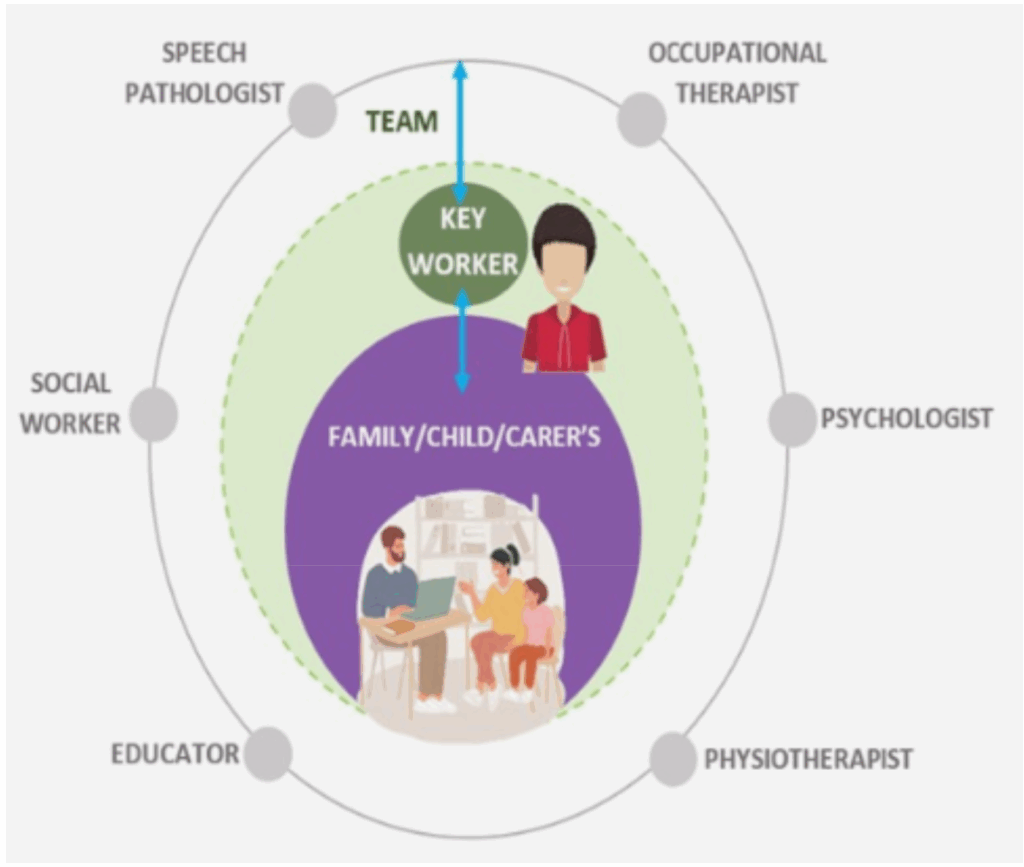Many parents and carers hear the term “Early Intervention” but are unsure what it actually means. Early Intervention is a structured and supportive approach that helps young children with developmental delays or disabilities get the right help as early as possible. This support gives children a better chance at building skills and reaching their full potential.
What Is Early Intervention?
Early Intervention is support given to children aged 0 to 7 who show signs of developmental delay or disability. The goal is to help children learn and grow in their everyday lives. This includes support with speech, movement, behaviour, learning, and social skills.
Early Intervention services work best when they are started early. These services are provided by trained professionals who work closely with the family. They focus on helping the child do well at home, in childcare, or in the community.
Why Does Early Intervention Matter?
The early years are critical in a child’s development. During this time, the brain grows quickly, and learning happens fast. If a child has a delay, it is important to act early. Getting support early can improve long-term outcomes for the child.
Here’s how Early Intervention can help:
- Improve communication, movement, and thinking skills
- Support positive behaviour and emotional development
- Help the child build relationships with others
- Reduce the need for more support later in life
How the NDIS Supports Early Intervention
The National Disability Insurance Scheme (NDIS) supports the Early Intervention Key Worker Model within its early childhood approach, as it ensures that children under the age of 7 receive the coordinated, family-centred support they need.
This model makes life easier for families by giving them a single, trusted contact person to manage their child’s support.
The Key Worker Model
The Key Worker Model assigns a dedicated early childhood intervention professional as the primary point of contact for families.
This professional collaborates closely with the family to coordinate and deliver tailored therapy services. By having a single, consistent contact, families benefit from communication and therapy being delivered by one key therapist, reducing stress and providing more consistent services.
The Key Worker:
- Understands the child’s needs
- Builds a relationship with the family
- Coordinates all therapy and support
- Helps with goal setting and progress tracking

What Support Can Look Like
Every child is different, and so is the support they receive. Therapy and learning activities might focus on speech, movement, behaviour, or helping the child with day-to-day activities like dressing or playing. These sessions usually happen in places that are familiar and comfortable for the child, such as at home, at childcare, or in the local community.
Instead of focusing only on one skill at a time, therapists work on practical goals that make life easier for the child and family. This includes things like learning to follow routines, improving communication, and playing with other children.
Here are a few examples of common Early Intervention supports:
- Speech and language development
- Movement and coordination support
- Help with daily tasks and routines
Signs That a Child May Benefit
You may wonder if your child needs support. Some signs that might point to developmental delay include trouble speaking, walking, or playing with others. A child might also have difficulty following instructions or managing emotions.
If you’re unsure, it’s best to ask for advice. You can talk to your GP, maternal and child health nurse, or an educator. You can also reach out to an Early Childhood Partner through the NDIS.
Why Families Choose Access Your Supports
We are committed to delivering an exceptional service that prioritises a child’s development and a family’s wellbeing. Our experienced and compassionate team members understand the intricacies of the NDIS and the importance of tailored support.
We recognise that every child and family is unique. Our services are customised to meet family lifestyles, unique needs, preferences and goals. We assist families in navigating the NDIS framework, ensuring families access the support their child requires without all that unnecessary complexity.
Taking the First Step
Early Intervention gives children the tools to grow and develop with confidence. It also helps families feel empowered, supported, and ready to take on each stage of their child’s journey.
If you think your child may benefit from Early Intervention, we encourage you to take that first step. You can speak with your child’s GP or educator, connect with an Early Childhood Partner through the NDIS, or reach out directly to our team.
At Access Your Supports, we’re here to help you understand your options and guide you through the process with care and clarity. Visit our contact page to get in touch with our team.
Whether you prefer to call, email, or complete our simple online form, we’re ready to help you move forward.


